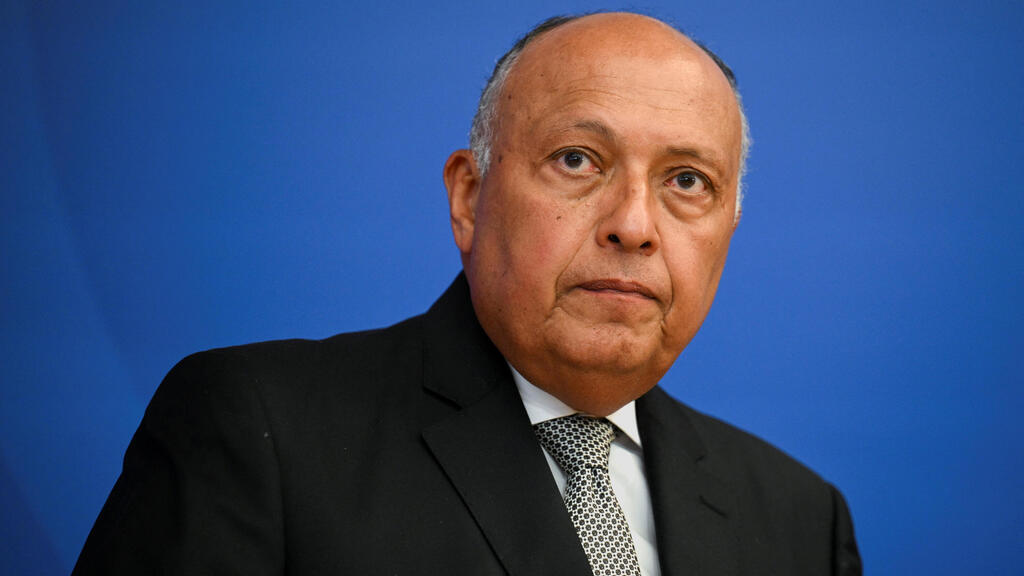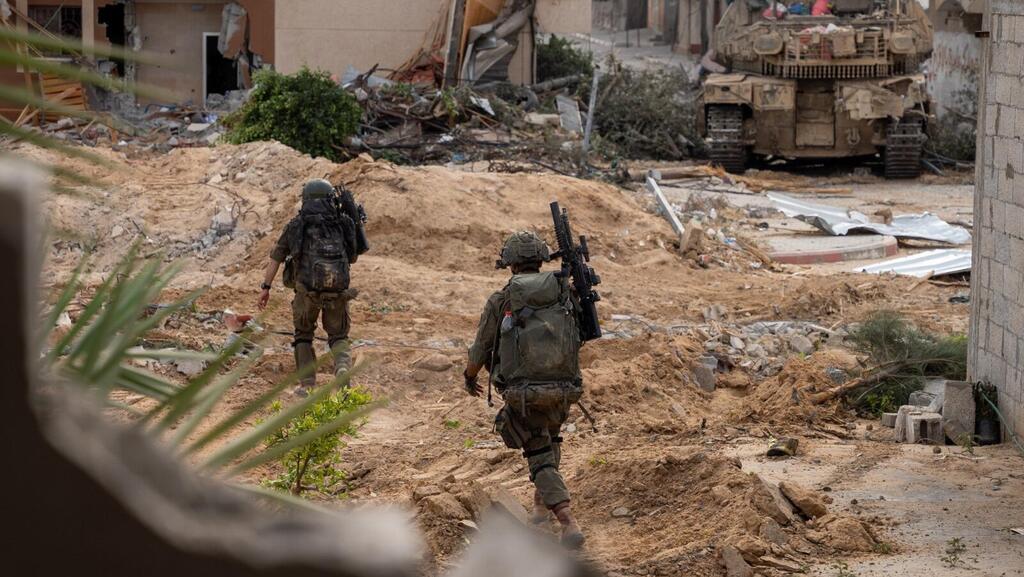Egypt's Foreign Minister, Sameh Shoukry, said Monday afternoon that "Hamas' initial statements indicate that it received the plan 'positively,'" and added that Cairo is now "waiting for the Israeli response," referring to the outline of a hostage and cease-fire deal revealed by U.S. President Joe Biden on Friday.
Biden said that he handed over an Israeli-proposed plan to Hamas, so it is not clear what Shoukry means regarding an Israeli response. This does not come as a surprise to some, however, because even some in the U.S. in recent days have expressed fear that, even if it is an Israeli proposal, Prime Minister Benjamin Netanyahu will have difficulty accepting it, among other things due to the threats of government ministers Itamar Ben-Gvir and Bezalel Smotrich to break up the coalition.
2 View gallery


Egypt's Foreign Minister Sameh Shoukry, said Monday afternoon that "Hamas' initial statements indicate that it received the plan 'positivel
(Photo: Reuters)
Hamas said after Biden's speech over the weekend that it views the plan "positively," although it has not yet officially responded to the Israeli proposal, and just last night it was reported that Israel and the mediators are now waiting for an official statement from Hamas leader Yahya Sinwar.
"We will agree to discuss in a positive and constructive manner any proposal based on a permanent cease-fire, a complete withdrawal from the Gaza Strip, rehabilitation, the return of the displaced to all their places of residence and the completion of a serious prisoner exchange if the occupation declares its explicit commitment to this," Hamas said after Biden's speech on Friday evening.
The same positive signal from Hamas came against the backdrop of the emphasis placed by the American president in his remarks on the fact that the three-phase deal could eventually lead to the end of the war. Prime Minister Benjamin Netanyahu's office later clarified that, although there is a willingness to discuss and agree to an end to the war, Israel will not be willing to do so without achieving its stated goals: overthrowing Hamas rule, return of the hostages and ensuring that Gaza will not again become a threat to Israel.
At the same time, according to Shoukry, Defense Minister Yoav Gallant made it clear Monday once again that Israel will not agree to the rule of Hamas in any plan to end the war. According to his office, Gallant emphasized in a conversation he held overnight with US Secretary of State Antony Blinken that Israel will not agree to Hamas controlling Gaza after the war, and informed him that the security establishment is currently promoting moves that will establish a governing alternative to Hamas.
"This is a necessary procedure for the overthrow of the Hamas government, and for creating pressure that will help in the return of the hostages," Gallant said.
On Sunday, Gallant referred to the plan promoted by the security establishment, and said that Israel would "isolate various areas" in the Gaza Strip, remove Hamas members from there, and bring in other forces that would enable "another rule," as he put it. He did not specify who those alternative governing bodies would be. According to Gallant, "these two operations - on the one hand a military action and on the other hand the possibility of a change of government, will lead to the achievement of two of the goals of this war - the overthrow of Hamas' rule and its military power and the return of the hostages. At any stage, in any process of ending the war we will not accept the rule of Hamas as a rule in Gaza."
In his remarks on Monday afternoon, Shoukry said that "Gaza has become a place that is impossible to live in with the non-inclusion of aid," even as talks continue between Jerusalem and Cairo on the opening of the Rafah crossing. On Sunday, a round of talks was held on the issue with American mediation, but no agreement has yet been reached on the opening of the crossing between the Gaza Strip and Sinai - a crossing that is critical for humanitarian aid efforts. Egypt refuses to open it as long as IDF forces control the Palestinian side, while Israel is in no hurry to hand it over to Palestinian hands. "First they must find a non-Hamas party that is willing to come," Israeli officials said yesterday.
Shoukry said in reference to this debate: "It is difficult to operate the Rafah crossing without coordination with the Palestinians." He added that most of the elements in the international community oppose the Israeli military presence in Gaza. "We call on Hamas and Israel to accept the cease-fire plan. Egypt has expressed its clear refusal to an Israeli presence at the Rafah crossing on the border with Gaza," he concluded.




